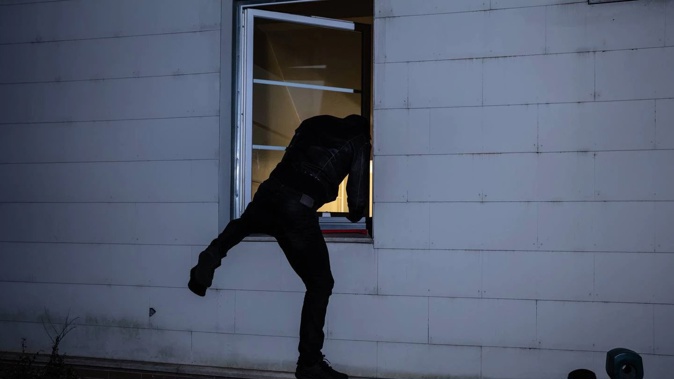

A burglar who left children in a small village so frightened they hid their pocket money under their pillows, afraid “the bad man would come back”, has just had more prison time added to his sentence.
But that doesn’t mean he will spend any extra time behind bars.
In May this year, Nicholas John Gear was sentenced to prison for three years and one month on 12 burglary charges plus a charge of theft, receiving stolen goods, and unlawfully getting into a vehicle.
In the Nelson District Court yesterday, he was sentenced to an extra three months on four charges of obtaining by deception.
Judge Tony Zohrab said they were matters that should have been dealt with at the time Gear was sentenced in May, but because of an oversight, they had not been placed before him.
As Gear listened in via an audio-visual link from prison, Judge Zohrab explained the additional sentence would not extend his time in prison, as it was to be served concurrently.
Gear had already been found guilty of a burglary in Westport in July 2020 and was on home detention when he targeted a string of properties in Wakefield and Brightwater villages, south of Nelson, over a concentrated few days in October that year.
He stole an estimated $43,000 worth of mainly outdoor equipment and tools from garages, vehicles and outbuildings, plus wallets and drivers’ licences, so accounts could be set up through which to sell goods online.
/cloudfront-ap-southeast-2.images.arcpublishing.com/nzme/XCKCMLQHN7LFE2WWXVQKAVHYAQ.jpg)
A burglar sentenced in the Nelson District Court in May to three years in prison has just had his sentence extended by three months, but it won't mean he will have to stay any longer behind bars. Photo / Tracy Neal
The offending was premeditated but “not the most sophisticated”, the court heard.
During sentencing in May this year the court heard how his life was “controlled by the scourge of Class A drugs”.
The Crown said: “All he’s ever known is that when you need something, you steal it.”
Judge Zohrab said then that it was clear from the victim impact statements that not only had the adults suffered emotional harm, but their main concern had been over what they had seen happen to their children.
One parent talked about how their children had been “affected massively”, so far as hiding their pocket money under their pillow, and asking “if the bad man would be coming back again”.
“To this day they still have to make sure that the doors are locked when they put the children to bed,” Judge Zohrab said in May.
The parent described it as “absolutely heartbreaking” to see children fretting over whether or not the doors had been locked.
Another described how their children were frightened and worried about people breaking into the house and being on their property at night, and how they felt unsafe and had high anxiety levels at their bedtime.
Parents observed many nights of tears and lack of sleep.
Gear did not break into any houses, so there was a “reasonably low chance of confrontation” with the occupants, but given the sheer number of offences, he was lucky not to have encountered anyone.
Judge Zohrab said a seriously aggravating factor of his offending was that it occurred when he was on home detention, yet somehow he was able to remove his tracker undetected and commit a burglary.
“It is incredibly serious because it is a privilege to be granted electronically monitored bail, and it is a concern that a person such as yourself is able to offend while subject to an electronically monitored sentence without setting off a warning.”
Judge Zohrab said Gear’s offending has undermined the trust and integrity of the home detention sentence, and also electronically monitored bail.
He said in an ideal world he would have liked to order reparation for all of the victims, but that was not possible.
“I think that if I were to make an order it would effectively be revictimising the victims, because they would get a letter from the court telling them that reparation has been ordered when realistically it is not able to be paid,” Judge Zohrab said.
Instead, an order was made for $700 in emotional harm reparation to each of the three victims who compiled the statements.
At the time, Gear was also encouraged to spend his energy making the changes to his life he had indicated, as opposed to lodging an appeal he had earlier raised was a possibility.
- Tracy Neal, Open Justice

Take your Radio, Podcasts and Music with you









